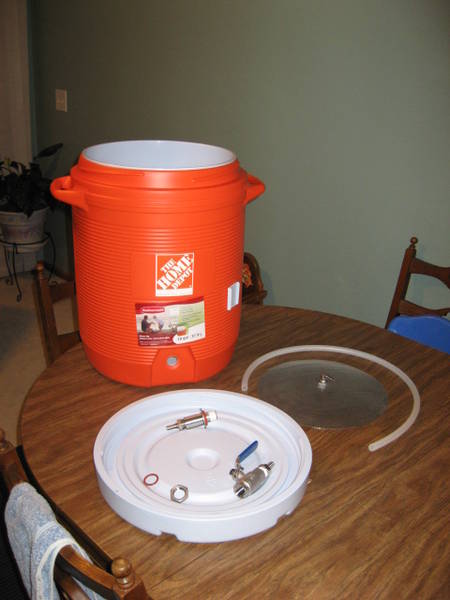Don't take this the wrong way but I don't think you are ready for AG. If you don't know the basic process do some more research and your first AG batch will be that much more enjoyable and make you less frustrated. An addition to knowing the process you have to know how the chemistry of the water affects the final output. Try a partial mash it is a lot more forgiving. AG will produce some nice beer but there is just too many variables that if you don't know what you are doing will just lead to frustration and eventually out of this hobby.
I understand how much grain I need do to the max ppg of the grain.
I understand what tempuratures the alpha and beta perform best at.
I understand that a protease can lead to too many fermentables and less body. And I understand that this is only needed for unmodified grains and using this with modified grains will result in water beer that will not maintain a nice head. I have 10lbs of unmalted/unmodified 2-row that the local HBS recommends the protein rest if I am using only this grain. This phase breaks down the large protein allowing the release of starches that will convert to fermentables and amino acids that the yeast will use for growth.
I understand that utilizing the beta can leading the breakdown of all the sugars resulting in watery beer due to lack of unfermentables.
I understand that utilizing the alpha can will leave unfermentables in the brew that will result in leaving the flavors from the grain and more body.
I understand that it is optimal to target a tempurature range of 153 in order to utilize both the beta amalyse and alpha amalyse. This is because the alpha will break down the amino acid chains into small peices so that the beta can go to town on the ends of of these smaller chains by hydrolization. So, as you approach tempuratures lower than 153, more amino acid chains are broken down resulting in a thinner beer because the yeasties were able to consume the lot. However, on the other end beta will not occur resulting in less food for the yeasties and more body.
I understand that two much water for the steep can result in less dense populations of enzymes slowing conversion of starches. However, by upping the time more starches will be converted to food for the yeasties making a lighter beer.
I understand that not enough water can cause the enzymes to be inhibited by the vast amount sugars eventually stopping the conversion resulting in a bigger beer.
I understand that I could check PH to find the happy medium between the alpha and beta, but, I'm not going there at this point in the game, do you?
And last, I understand that I cannot learn everything from a book. That is why a came to this forum.
I am really not worried about wasting $10.00 worth of grain and $4.00 worth of hops if I do screw up.
Practice makes perfect.



